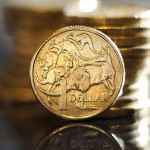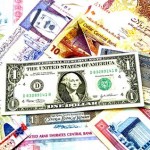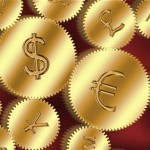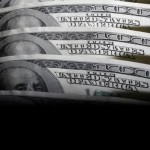Yen hits 7-year low vs dollar; Aussie falls after weak China PMI
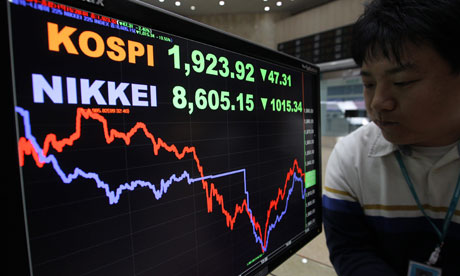
The yen fell to a fresh seven-year low against the dollar on Monday, extending a massive sell-off sparked by the Bank of Japan’s surprise decision to boost its already huge bond-buying stimulus.
Sellers also took aim at the Australian dollar following a weak official survey on China’s manufacturing sector and a surprisingly large fall in Australian building approvals, while the euro hit a fresh two-year low against the greenback.
The dollar came within a whisker of 113.00 yen, reaching a high not see since December 2007 and bringing into view that month’s peak of 114.66. It last traded at 112.76 yen, up 0.4 percent, having touched a high near 112.98 yen.
The greenback soared nearly 3 percent versus the yen on Friday after the BOJ raised its monetary base target to an annual increase of 80 trillion yen from 60-70 trillion yen and tripled the pace of its buying of risk assets such as exchange traded funds (ETFs) and real estate investment trusts (REITs).
The yen could face further speculative selling, after the BOJ’s unexpected easing underscored the monetary policy divergence between the BOJ and the U.S. Federal Reserve, said Nobuhiko Akai, head of trading department for the Bank of Tokyo-Mitsubishi UFJ in Singapore.
“Everyone had been expecting a 105-110 yen trading range for a while, but now that seems to have completely shifted to a 110-115 yen range,” Akai said, adding that the dollar may test 115 yen by year-end.
“The market might just be at the start of moving to the next stage,” he said, adding that market participants seemed to be rebuilding bullish bets on the dollar versus the yen.
The BOJ announcement was followed by news that Japan’s $1.2 trillion Government Pension Investment Fund will raise its holdings of foreign stocks to 25 percent from 12 percent, a figure that some analysts said was much higher than expected.
In a sign of the bearish sentiment against the yen, the euro touched a six-month high of 141.40 yen and the Australian dollar set a 17-month high of 98.94 yen earlier on Monday. Both the euro and the Aussie later came off such peaks against the yen, however.
The Australian dollar fell against the greenback after a survey on Saturday showed China’s factory activity unexpectedly fell to a five-month low in October.
Data on Monday showing a shocking drop of 11 percent in Australian building approvals in September added to pressure on the Aussie, which fell 0.8 percent to $0.8727.
Mixed readings on China’s manufacturing and services sector released on Monday did little to shore up the Australian dollar, which is often used as a liquid proxy for China plays.
The greenback also pushed higher against the euro, which hit a two-year low of $1.2439, its lowest level since August 2012. The euro was last down 0.4 percent at $1.2480.
Traders suspect the euro will stay on the defensive in the lead up to the European Central Bank policy review on Thursday.
“We’ve had surprises from central banks last week in the form of Riksbank and the Bank of Japan, and pressure is obviously on the ECB,” said Mitul Kotecha, head of FX strategy, Asia-Pacific for Barclays in Singapore.
The Riksbank, Sweden’s central bank, last week cut its key interest rate by a bigger than expected 25 basis points to a record low of zero percent to fight persistently low inflation.
With the euro on the backfoot, the dollar hit a four-year peak against a basket of major currencies at 87.40.
Besides the ECB meeting, U.S. jobs data will be a focal point later in the week. Manufacturing surveys from Europe and the United States are coming up later on Monday.
Source: reuters- Yen hits 7-year low vs dollar; Aussie falls after weak China PMI









